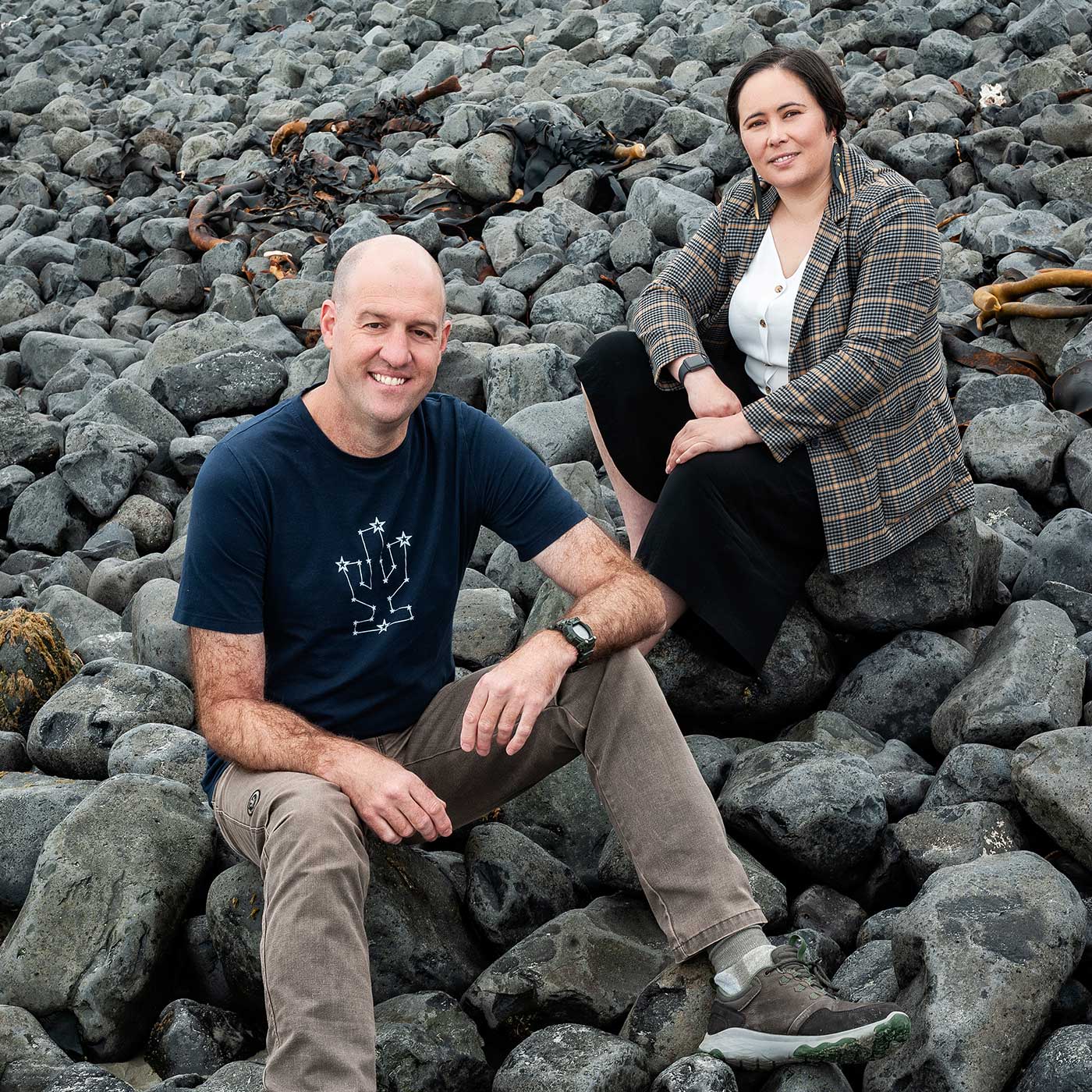UniNews
Funding successes
Two Otago proposals have been awarded significant five-year funding in the Ministry of Business, Innovation and Employment's (MBIE) Endeavour Fund 2020 grants. Professor Craig Rodger (Physics) received over $15 million – the largest grant ever awarded to an Otago Edeavour Fund project – for research into space-weather prediction and risk mitigation for New Zealand energy infrastructure (see pages 6-9). Sesquicentennial Distinguished Professor Philippa Howden-Chapman received more than $12 million for research into public housing and urban regeneration to maximise well-being.
University of Otago researchers also secured $17.5 million from the Marsden Fund for 30 research projects across all academic divisions. Fourteen projects received grants ranging from $729,000 to $960,000, and a further 16 researchers received $300,000 Fast-Start grants. The funded projects will focus on subjects including stress hormones, the links between chromatin and neurodevelopmental disorders, the impact of flooding on property values in New Zealand's coastal cities, child-friendly neighbourhoods, the decline of substance abuse in adolescents, and virus evolution in native species.
Welcoming the funding, Vice-Chancellor Professor Harlene Hayne says the awards are a significant achievement and testament to the hard work and world-leading research happening at Otago.
“There is always huge competition for these awards, not just from the country's eight universities, but also about 30 Crown research institutes and private and public-sector organisations.,” she says. “These impressive performances continue the University's strong record in gaining external research funding and reflect the ongoing strength of the University's research culture.”
Arts Fellows
The University of Otago's 2021 Arts Fellows continue a strong tradition of celebrating diversity and making culture accessible to many.
They are: Becky Manawatu, Robert Burns Fellow; Lucy Marinkovich, Caroline Plummer Fellow in Community Dance; Heather McQuillan, University of Otago College of Education Creative New Zealand Children's Writer in Residence. 2020 Frances Hodgkins Fellow Bridget Reweti and 2020 Mozart Fellow Kenneth Young have both received Fellowships for a second year.
Professorial promotions
The following University of Otago academics were promoted to the position of professor, effective 1 February, 2021:
Robert Aitken (Marketing); Boris Baeumer (Mathematics and Statistics); Tim Cooper (Theology); Sue Crengle (Preventive and Social Medicine); Barbara Galland (Women's and Children's Health); David Gwynne Jones (Surgical Sciences); Simon Hales (Public Health); Merilyn Hibma (Pathology); David Jardine (General Medicine, Christchurch); Roslyn Kemp (Microbiology and Immunology); Ping Liu (Anatomy); Christoph Matthaei (Zoology); Janice Murray (Psychology); Dorothy Oorschot (Anatomy); Chris Pemberton (Medicine, Christchurch); Patricia Priest (Preventive and Social Medicine); Anna Ranta (Medicine, Wellington); Bruce Russell (Microbiology and Immunology); Ben Schonthal (Religion); Mark Seymour (History); Faumuina Fa'afetai Sopoaga (Health Sciences); Janet Stephenson (Centre for Sustainability); Nicola Taylor (Law); Maree Thyne (Marketing); Paola Voci (Languages and Culture); Nicola Wheen (Law).
Honorary degree
The University has recognised the contribution of Vice-Chancellor Professor Harlene Hayne with an Honorary Doctor of Laws degree. The degree was conferred at the 13 March graduation ceremony.
New Year Honours
The following Otago alumni and staff received 2021 New Year Honours.
ONZ: Professor Emeritus Sir Mason Harold Durie, KNZM, for services to New Zealand.
KNZM: Mr Ian Lemuel Taylor, CNZM, for services to broadcasting, business and the community.
CNZM: Professor Stephen Thomas Chambers, for services to infectious disease research; Dr Stuart Peter Gowland, QSO, for services to health and education; Distinguished Professor Philippa Lynne Howden-Chapman, QSO, for services to public health; Dr David William Kerr, for services to health and business.
ONZM: Dr Christine Margaret Foley, for services to victims of sexual assault; Dr Janette Fay Irvine, for services to women and women's health; Dr Timothy Michael Malloy, for services to health; Dr Colin Douglas Meurk, for services to ecological restoration; Dr Gail Tewaru Tipa, for services to Māori and environmental management.
MNZM: Mrs Susan Veronica Anderson, JP, for services to restorative justice; Professor Michael George Baker, for services to public health science; Professor Bronwyn Mary Hayward, for services to political science, particularly sustainability, climate change and youth; Mr Samuel Edwin Isaac Judd, for services to the environment and sustainability education; Dr Jann Medlicott, for services to philanthropy, the arts and radiology; Ms Melissa Potocka Moon, for services to athletics and charitable causes; Mr Paul Gerard Norris, for services to the tourism industry and conservation; Mrs Pauline Kei Smith, for services to Pacific arts and the community; Dr Tasileta Teevale, for services to Pacific education and public health research; Mr Gary Lynnford Watts, for services to mental health.
QSM: Mr Lester Dean, for services to the Pacific community; Reverend Falkland Gary Fereti Liuvaie, for services to the Niue community; Reverend Alison Jean Stewart, for services to choral music.
Emeritus professors
The University Council has awarded Emeritus Professor status to:Professor David Bell (College of Education); Professor Nicola Peart (Faculty of Law); Professor David O'Hare (Psychology).
Appointments
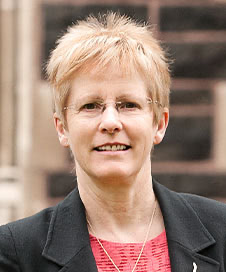 Professor Helen Nicholson has been appointed to the position of Acting Vice-Chancellor. Professor Pat Cragg has returned to the position of Acting Deputy Vice-Chancellor (Academic).
Professor Helen Nicholson has been appointed to the position of Acting Vice-Chancellor. Professor Pat Cragg has returned to the position of Acting Deputy Vice-Chancellor (Academic).
Professor Brian Hyland has been appointed to the role of Dean of the School of Biomedical Sciences.
Professor Jessica Palmer (formerly Dean of the Faculty of Law) has been appointed as Pro-Vice-Chancellor (Humanities).
Professor Shelley Griffiths is the Acting Dean of the Faculty of Law; and Professor Michael Reilly is Acting Dean of Te Tumu, School of Māori and Indigenous Studies.
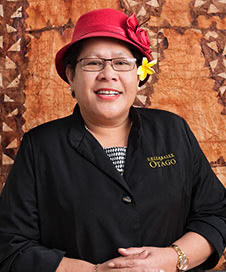 Ms Tofilau Nina Kirifi-Alai, formerly manager of the Pacific Island Centre, has accepted a new role as the manager of Pacific Community Engagement, based in Auckland.
Ms Tofilau Nina Kirifi-Alai, formerly manager of the Pacific Island Centre, has accepted a new role as the manager of Pacific Community Engagement, based in Auckland.
Dame Fiona Kidman DNZM OBE, is the inaugural recipient of the University of Otago Centre for Irish and Scottish Studies (CISS) Irish Writers Fellowship. Initiated in 2020, the CISS Scottish and Irish Writers Fellowships aim to facilitate and encourage literary and cultural exchange between Ireland, Scotland and New Zealand.
Achievements
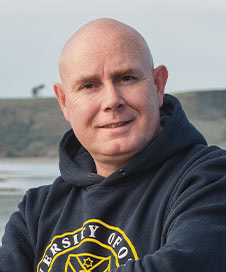 Evolutionary and reproductive biologist Distinguished Professor Neil Gemmell received the 2020 Hutton Medal by the Royal Society Te Apārangi, awarded annually to a researcher for significantly advancing understanding in animal, plant or earth science.
Evolutionary and reproductive biologist Distinguished Professor Neil Gemmell received the 2020 Hutton Medal by the Royal Society Te Apārangi, awarded annually to a researcher for significantly advancing understanding in animal, plant or earth science.
Professor Mark Weatherall (Medicine, Wellington) was jointly awarded the Health Research Council's Liley Medal, presented annually for outstanding contributions to the health and medical sciences.
Professor Tim Woodfield is the first New Zealander to be awarded the Australasian Society for Biomaterials and Tissue Engineering Award for Research Excellence. Professor Woodfield leads the Christchurch Regenerative Medicine and Tissue Engineering (CReaTE) Group.
Students Holly Still (Geology) and Taylor Hamlin (Zoology, and Maths and Statistics) have each been awarded $20,000 Doctoral scholarships by Antarctica New Zealand.
Dr Elodie Desroziers (Physiology), Dr Sunali Mehta (Pathology) and Dr Adam Middleton (Biochemistry) have received Sir Charles Hercus Health Research Fellowships.
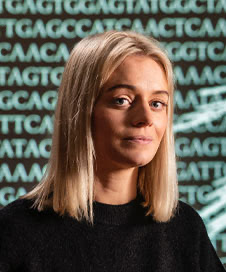 Dr Jemma Geoghegan (Microbiology and Immunology and ESR) and Dr Nathan Kenny (returning to Otago from Oxford Brookes University) have each been awarded $800,000 five-year Rutherford Discovery Fellowships from the Royal Society Te Aparangi.
Dr Jemma Geoghegan (Microbiology and Immunology and ESR) and Dr Nathan Kenny (returning to Otago from Oxford Brookes University) have each been awarded $800,000 five-year Rutherford Discovery Fellowships from the Royal Society Te Aparangi.
Dunedin biochemistry graduate Jennifer Palmer has been awarded a Cambridge-Rutherford Memorial PhD Scholarship to study at Cambridge University, England.
Professor Sarah Derrett was awarded the Otago Medical School's Dean's Medal for Research Excellence.
Associate Professor Vijay Mallan (Higher Education Development Centre) became the first person outside the United Kingdom to become a UK Council of Graduate Education recognised doctoral supervisor.
History Professor Takashi Shogimen has become the first New Zealand-based humanities scholar to be invited to join the prestigious Academia Europaea, a pan-European Academy of Humanities, Letters and Sciences.
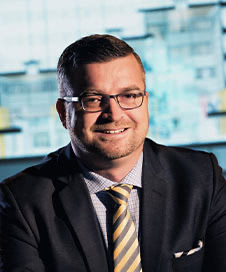 Chief Operating Officer Stephen Willis won the 2020 Australasian L.H. Martin Award for Excellence in Leadership for his sustained and strategic leadership during a time of significant change and during the COVID-19 pandemic. The prize was part of the Australasian Association of Tertiary Education Management's Best Practice Awards.
Chief Operating Officer Stephen Willis won the 2020 Australasian L.H. Martin Award for Excellence in Leadership for his sustained and strategic leadership during a time of significant change and during the COVID-19 pandemic. The prize was part of the Australasian Association of Tertiary Education Management's Best Practice Awards.
Professor Richie Poulton (Multidisciplinary Health and Development Research Unit), Professor John Crump (Otago Global Health Institute), Professor Debbie Hay (Pharmacology and Toxicology) and Professor Peter Fineran (Microbiology and Immunology) were included in the 2020 Clarivate Highly Cited Researchers list (in the top one per cent of citations globally).
Obituaries
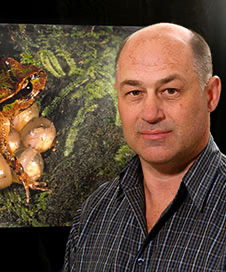 Professor Phil Bishop (Zoology) was a champion of amphibian conservation and highly respected teacher. With more than 100 publications in conservation biology and applied ecology to his name, his research has made a broad contribution, from New Zealand's little-known native frog species to the development of conservation techniques and approaches globally. He was also an outstanding science communicator. He co-ordinated two visits to Otago by Dame Dr Jane Goodall and, in his role as Director of the World Congress of Herpetology, in early 2020 he led a successful event that brought 870 delegates to Otago from 57 countries worldwide.
Professor Phil Bishop (Zoology) was a champion of amphibian conservation and highly respected teacher. With more than 100 publications in conservation biology and applied ecology to his name, his research has made a broad contribution, from New Zealand's little-known native frog species to the development of conservation techniques and approaches globally. He was also an outstanding science communicator. He co-ordinated two visits to Otago by Dame Dr Jane Goodall and, in his role as Director of the World Congress of Herpetology, in early 2020 he led a successful event that brought 870 delegates to Otago from 57 countries worldwide.
Associate Professor Russell Poulter joined the Biochemistry Department as a lecturer in fungal genetics in 1972 and was directly responsible for the establishment of Otago's genetics degree programme. He retired from teaching in 2018, but continued his research until his death in January.
Associate Professor Gina Forster, took up a lectureship role in the Department of Anatomy in 2018, after a distinguished career overseas. She played an active role in service and outreach activities, as well as the Brain Health Research Centre.
Emeritus Professor Daniel McKerracher joined the University of Otago in 1973 and was an educational psychologist in the Department of Education. He retired in 1997.
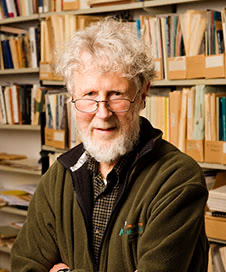 Emeritus Professor James Flynn, who died in December 2020, aged 86, was renowned for his intelligent approach to research and teaching, and his internationally recognised work on race and IQ.
Emeritus Professor James Flynn, who died in December 2020, aged 86, was renowned for his intelligent approach to research and teaching, and his internationally recognised work on race and IQ.
He was appointed as the Foundation Professor of Political Studies at Otago in 1967 and was Head of Department until 1996. He then became joint Emeritus Professor in the Politics programme and Department of Psychology. He retired early in 2020.
Otago Vice-Chancellor Professor Harlene Hayne was just one of many academics around the world who has paid tribute to Professor Flynn, describing him as “an iconic figure around our campus”.
“He was a legendary teacher and a giant amongst scholars,” she says. “His work was highly cited across a number of disciplines, his research made a real difference in the world and his ideas had an immense reach, from high school classrooms to the frontiers of social science research.”
From 1981 – when he began investigating US Armed Forces mental records – Flynn produced numerous publications on intelligence, race and worldwide increases in IQ scores over time. This ground-breaking research on what became known as the “Flynn Effect” gained international recognition. He returned to, and expanded on, these themes throughout his career in books such as What is Intelligence? Beyond the Flynn Effect (2007).
Professor Flynn advocated open scientific debate about controversial social science claims, however, despite his extensive work on IQ, Flynn described himself as “primarily a moral philosopher who merely [had] a holiday” in psychology.
He also became an internationally renowned author of non-fiction books: Beyond Patriotism: From Truman to Obama (2012) provides an insightful critique of US politics and foreign policy; Fate & Philosophy: A journey through life's great questions (2012) delves into religion, ethics, science, and free will; The Torchlight List: Around the world in 200 books (2010) analyses works that delight and enlighten recent history and the modern world.
Interspersed with these were works dealing with broader social issues; A Book Too Risky to Publish: Free Speech and Universities (2019) concluded that few universities now meet their original goals of promoting free inquiry and unfettered critical thought. In No Place to Hide: Climate Change (2018) he argued climate engineering is necessary to buy the time until carbon-free energy is readily available. His books have been translated into Spanish, Portuguese, Polish, Korean, Arabic, Italian and Japanese.
Born in Washington DC during the Great Depression, Flynn became a self-professed "atheist, a scientific realist, a social democrat". He was a member of the Socialist Party of America and served as chairperson for the Congress of Racial Equality (CORE), a civil rights organisation in the US South.
However in 1963, after several unsuccessful job interviews around the US, he, wife Emily and his young family headed for New Zealand and a teaching position at the University of Canterbury.
In New Zealand he continued to campaign for left-wing causes and became a founding member of both the New Labour Party and the Alliance, three times unsuccessfully standing for parliamentary election.
While political success may have proved elusive, Flynn's academic work was widely lauded. He was an Honorary Fellow for life of the New Zealand Psychological Society, receiving the Society's Special Award in 1998.
In 2002 the University of Otago awarded him its Distinguished Research Medal and, in 2010, an honorary Doctorate of Science. He was a Fellow of the Royal Society of New Zealand and in 2011 was a recipient of its Aronui Medal for research of outstanding merit in the Humanities.
In 2007, the International Society for Intelligence Research made him a Distinguished Contributor, and he was also made a Cambridge University Distinguished Associate of The Psychometrics Centre.
His profound knowledge on a range of issues and skills as a communicator also translated well to new media: his 2013 TED talk, titled “Why our IQ levels are higher than our grandparents”, has been viewed more than 2.8 million times.
For more: otago.ac.nz/news/otago760050.html

